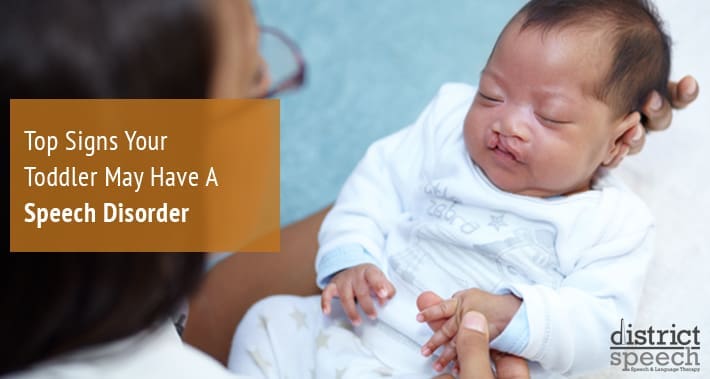
It’s common for new parents to worry about their child’s language development.
After all, your child will use their speech and language skills to learn, play, and develop other types of verbal communication skills, such as singing and storytelling.
Research shows that children with speech disorders are at a greater risk of struggling academically.
That’s why early intervention speech therapy is so important.
Seeing a Washington DC speech therapist for kids as early as possible can help your child avoid having to struggle with their speech disorder.
In this article, we’ll highlight some of the most common signs that your child might have a speech disorder.
Keep reading to find out more.
1. They Had Cleft Lip Or Cleft Palate
Children born with a cleft lip or cleft palate are much more likely to experience speech disorders.
A cleft lip refers to a birth defect that causes an opening in your child’s upper lip.
Similarly, a cleft palate causes an opening in the roof of the mouth.
Any problem with your child’s lip, jaw, or tongue can make it difficult for them to communicate clearly and efficiently.
Therefore, children with cleft lips or cleft palates often require the help of a speech therapist to help develop their speech and language skills.
RELATED: Best Cleft Lip And Cleft Palate Speech Therapy Washington DC
2. They Don’t Babble As A Baby
Babbling is the way that babies communicate before they learn how to speak.
If you’ve ever heard your baby making “nonsense” noises, you’ve heard them babble.
While these nonsense words may not sound very important, they help your child learn how to form words and prepare them for their future language development.
RELATED: Articulation Disorder: When Is It Baby Babble And When Is It A Problem?
3. They Stutter Often
Stuttering is extremely common amongst young children who haven’t yet fully developed their speech and language skills.
For instance, some children stutter by repeating whole words (The – the – the ball went over the fence) whereas others will only repeat the first syllable of a word (b – b – ball).
However, stuttering that doesn’t improve with your child’s language development might indicate a potential speech disorder.
If your child’s speech is characterized by frequent stuttering that doesn’t improve with age, it might be helpful to consult with a speech therapist.
RELATED: Stuttering Treatment in DC
4. They Don’t Make Gestures
Like babbling, making gestures is a method most children use to communicate with their caregivers.
For instance, your child might point to their bottle when they are hungry or wave at you to say hello.
If your child isn’t using these gestures by their first birthday, consider taking them into a speech therapist for an evaluation.
Not making gestures can be a sign of autism spectrum disorder, which can come with its own speech issues.
5. They’re Hard Of Hearing
A good sense of hearing is one of the most important factors in teaching your child how to talk.
To learn how to properly make sounds, your child has to first hear the correct pronunciation of those sounds.
Therefore, children experiencing hearing loss often struggle with their language development.
If your child has been diagnosed with hearing loss, a speech therapist can help.
RELATED: Speech Therapy Treatments For Hearing Impaired Kids
6. They Frequently Have Ear Infections
Frequent ear infections can interfere with your child’s ability to communicate effectively.
Chronic ear infections can cause fluid in your child’s middle ear to build up and impair their hearing.
Since hearing is an important factor to learning how to speak, children with frequent ear infections and subsequent hearing loss often experience delayed speech skills.
RELATED: Speech Therapy For Kids With Frequent Ear Infections
7. Their Voice Is Inconsistent
Consistency is an important part of communication.
For instance, keeping your voice at a consistently high volume can reflect certain emotions, such as anger and excitement.
Children with speech disorders often display an inconsistent voice quality.
If your child has trouble maintaining their volume, articulation, pitch , intonation, or resonance , it may be a sign they have a speech disorder.
8. Their Pronunciation Is Inconsistent
In addition to an inability to control their other elements of speech, these children often also struggle with incorrect syllable emphasis.
For instance, a child with a speech disorder might be able to pronounce a word correctly but struggle with emphasizing the correct syllable (such as saying BA-NAN-A instead of ba-NAN-a).
9. They Don’t Like Interacting With Other Kids
Babies are born social creatures.
Even before they learn to speak, babies are capable of socializing by smiling and crying.
Once they learn to speak, socializing with other kids is one of the ways your child develops their communication and interpersonal skills.
Therefore, if your child is reluctant to interact with other kids, consider getting them evaluated by a speech therapist.
10. They Don’t Speak At All
Not speaking at all is perhaps the biggest red flag for a potential speech disorder.
Like previously mentioned, children are naturally social creatures.
Once they learn to speak, it’s next to impossible to get them to stop.
By the time they are two years old, your child should be able to say at about fifty or so words.
If they can’t, they might be dealing with a speech disorder.
RELATED: What Speech Related Milestones Should Your Child Be Reaching?

When Should You Begin Speech Therapy?
If you suspect that your child is dealing with a speech disorder, early intervention is key.
Bringing your child in to see a Washington DC speech therapist at the first sign of difficulty will give them the help they need to catch up with their peers.
Your child’s speech therapist will create an individualize therapy plan that’ll help them succeed in their future academic and social worlds.
Book Your Appointment With District Speech Today
At District Speech, we know how important early intervention is for your child’s future success.
Our qualified speech therapists will work with you and your child to help conquer their speech disorders.
Book your appointment with District Speech today.
1300 I St NW, Suite 400 E,
Washington, DC 20005
- https://g.page/districtspeech
District Speech and Language Therapy specializes in speech therapy, physical therapy, and occupational therapy solutions, for both children and adults, in the Washington D.C and the Arlington Virginia areas.